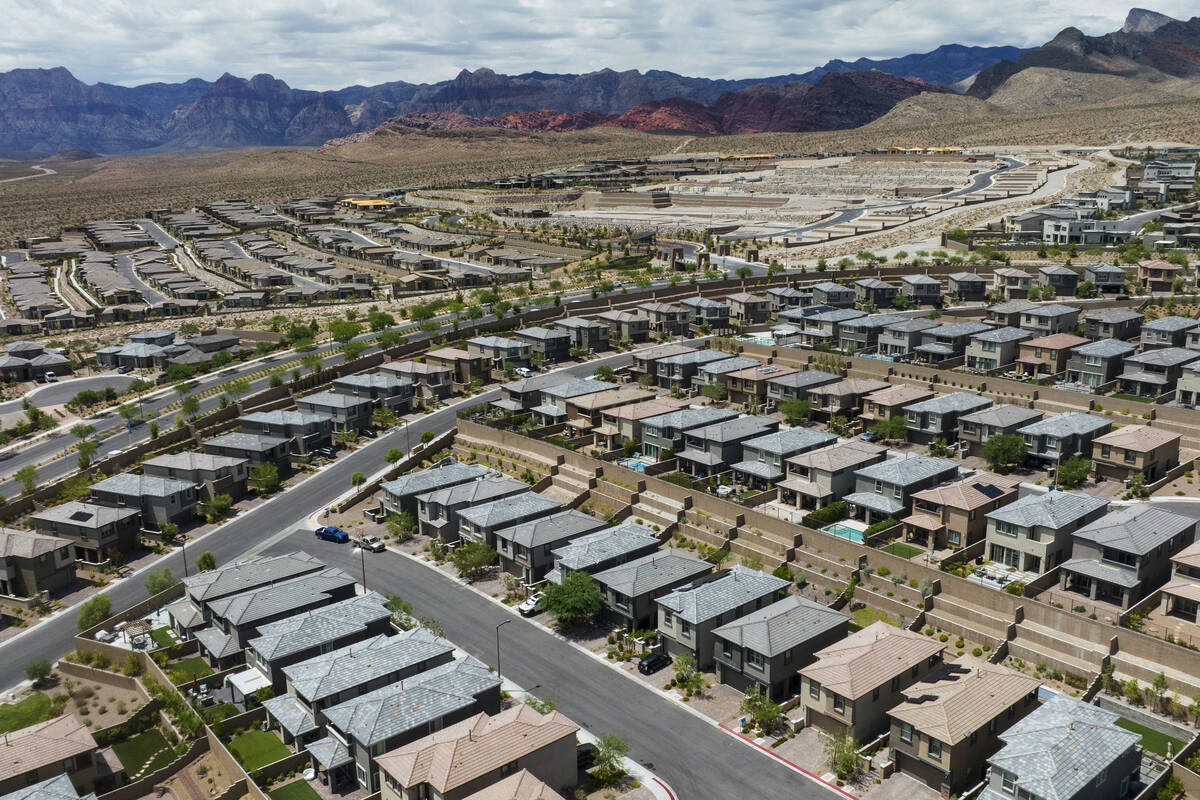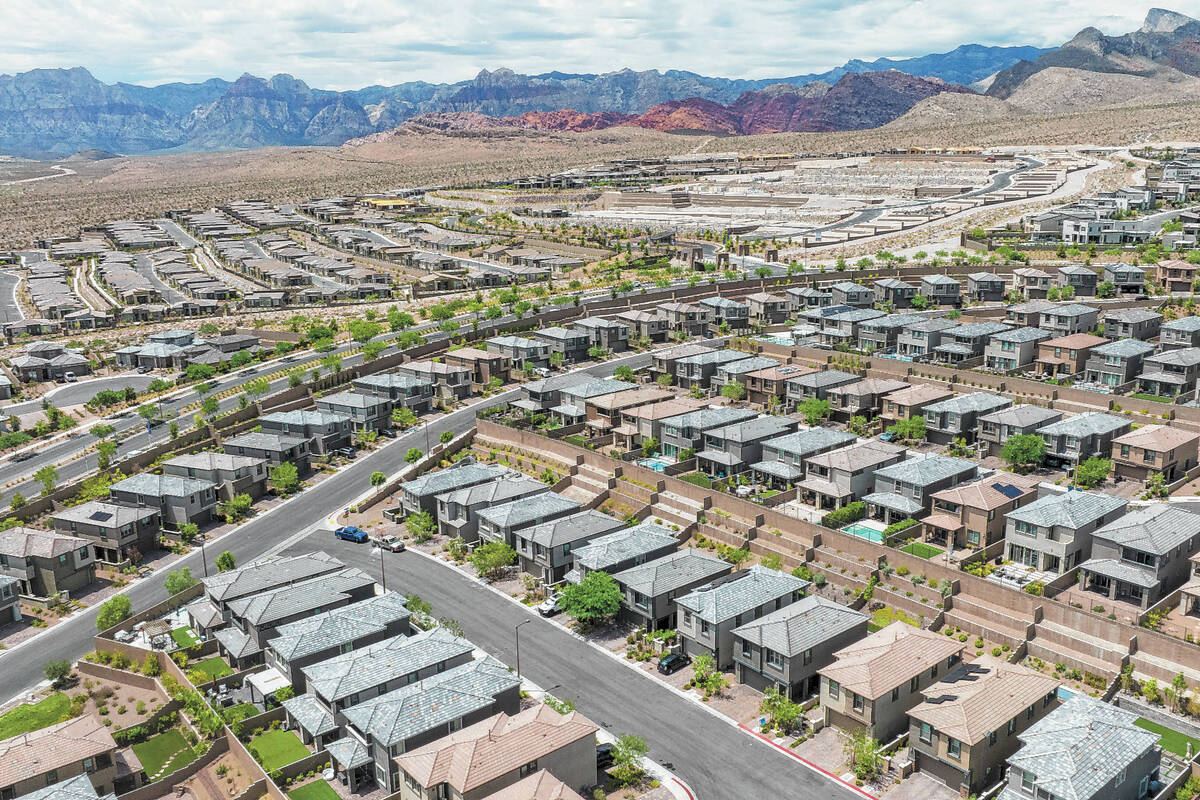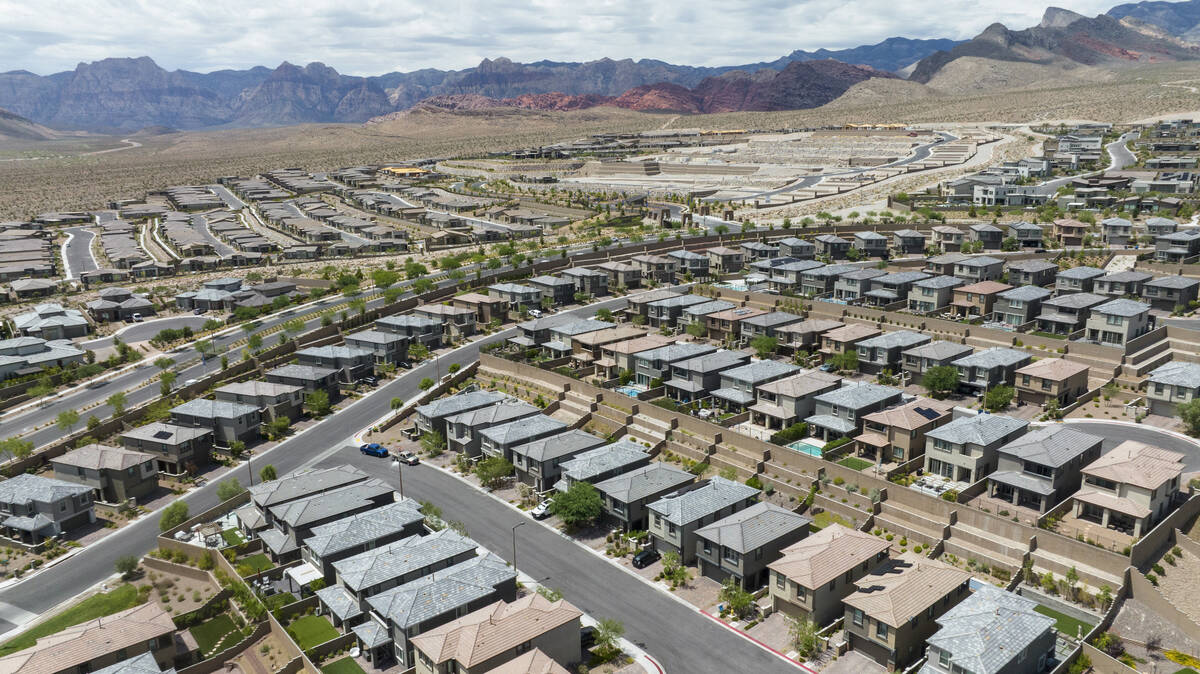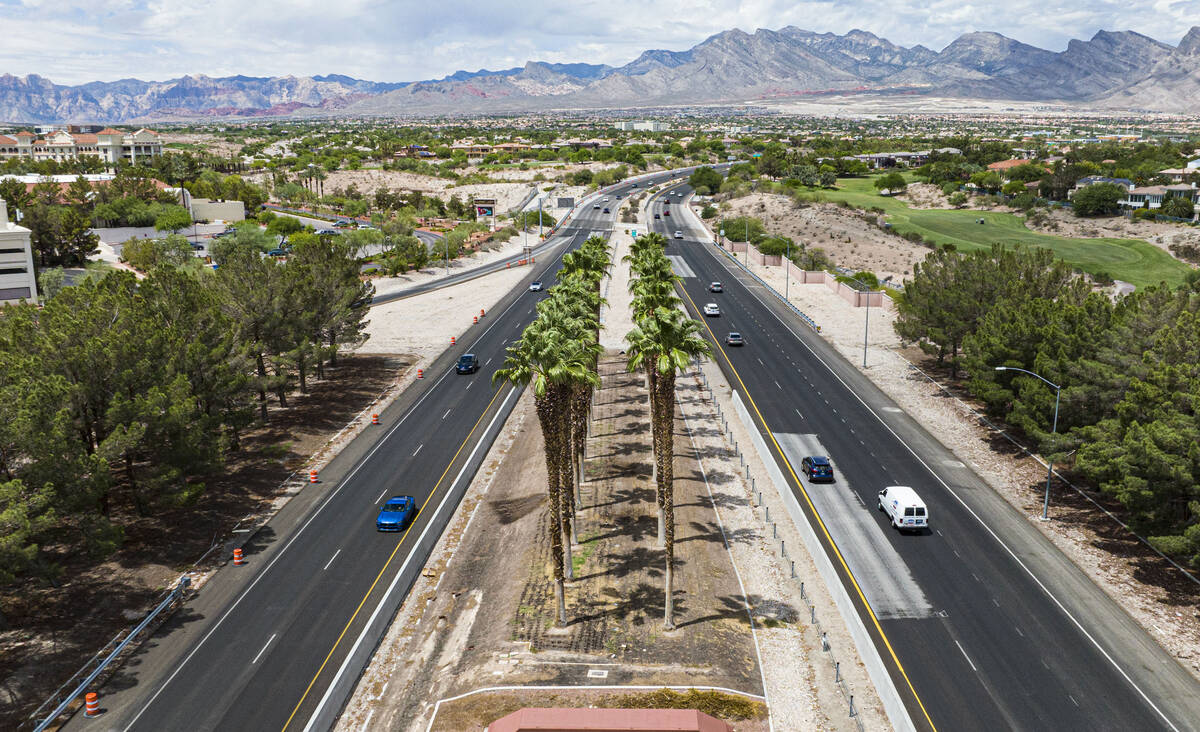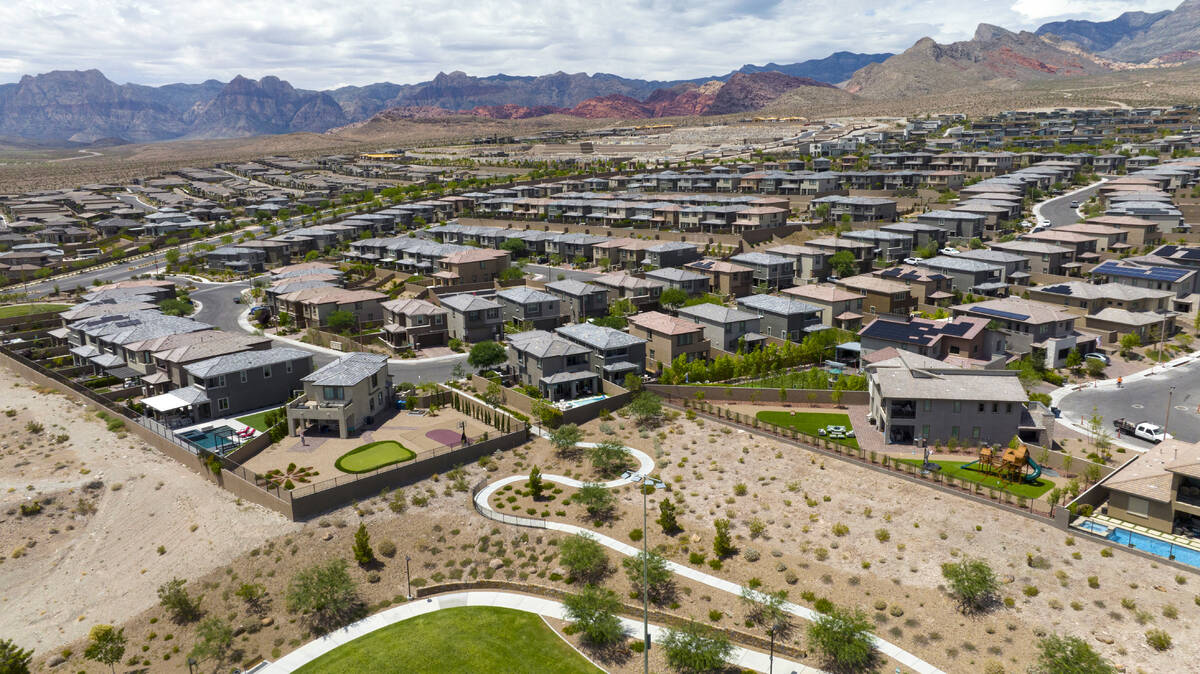‘We need more product’: Housing demand challenges Clark County
Roughly 115 people are moving to Clark County every day, with the area’s population expected to surpass 3 million before 2050, according to a new report prepared by UNLV for local governments, putting extra pressure on a region already seeing a shortage of affordable housing.
Increased interest in people relocating to the county, including an uptick in high-income, college-educated workers moving here, could also make matters worse for the housing market, according to industry experts and executives. Currently, an estimated 2.37 million people live in the county, according to the UNLV report.
“We need more product,” said Lee Barrett, the president of the Las Vegas Realtors. “What’s kept the values up in the Las Vegas market is that lack of product, so it’s a supply and demand issue.”
The National Low Income Housing Coalition estimates the county is already short 85,000 affordable housing units. But government leaders and industry execs say measures are being put into place to hopefully ease the problem in the years ahead.
Clark County is seeing a demographic shift with its large influx of new residents, a rise in high-income, college-educated workers moving in, which kicked off during the COVID-19 pandemic, said Andrew Woods, the director of UNLV’s Center for Business and Economic Research, and an author of the annual report that looks at population estimates for the county though 2080.
Now, college-educated workers make up well over a quarter of Clark County’s new residents, Woods said, a 5 percent jump from pre-pandemic numbers.
“The bottom line is college-educated workers had more choice in where they wanted to live during the pandemic, so more of them moved,” he said. “We saw that they desired to get out of large, expensive urban communities and move to places with more affordable living, perceived higher quality of life, and for job opportunities in or outside of their current line of work. Las Vegas did experience an influx of college-educated workers compared to pre-pandemic.”
On top of a growing number of high-income workers, who will all need places to live, Clark County’s housing market is already dealing with a supply issue, as many homeowners who bought at low interest rates are staying put. Meanwhile, a construction slowdown caused by increased building costs has created a perfect storm, leading to historically low inventory across the board. So the question remains, where are all these new residents going to live?
A change in strategy
Real estate industry leaders say they are taking meaures to build up supply.
Recently, Las Vegas Realtors partnered with the Southern Nevada Home Builders Association to create an advisory council that will work towards making sure a mix of new houses — from cheaper starter homes to luxury real estate — are all being built to meet demand, Barrett said.
“The idea is to talk to new homebuilders and see how we can support them politically and everything else to go ahead and get more buildings started, and more affordable housing, too, with a bit of higher density,” he said.
Amanda Moss, senior director of governmental affairs for the Southern Nevada Home Builders Association, said the lack of affordable land, the shortage of construction workers and higher construction costs have all played into creating a contrained market now also further hampered by high interest rates.
“Land is probably, as a single line item, the largest impediment to not only market rate development, but also affordable housing,” she said. “And I think the stat that kind of shows it the best is that land use (in Nevada) used to be around 25 percent of housing costs, and now it’s closer to 40 percent.”
Local governments are finding themselves trying to balance market interest and public needs in a real estate market that is still reeling from the pandemic and years of record-breaking home prices, sales and listings.
Federal interest rate hikes have cooled the market in 2023, but finding an equilibrium has proven more difficult as inflation remains stubbornly high and the cost of a mortgage is the highest it has been since the 2008-09 economic downturn.
Kathi Thomas-Gibson, director of community services for Las Vegas, said part of the battle is making sure local jurisdictions aren’t losing affordable housing units at the same rate they are gaining them.
“So the city is always looking at housing preservation,” she said, “in other words, keeping the affordable housing we currently have, affordable. And we are looking at the acquisitions that we have and taking older buildings and working with the community to acquire them and rehabilitate them so they can be used as affordable housing.”
The city of Las Vegas has a rehabilitation program aimed at preserving and stabilizing the community’s housing stock when it comes to affordable housing by providing critical home repairs for low-income homeowners who qualify.
Federal land to the rescue?
A recently signed agreement that allows Southern Nevada governments to buy public federal land for as low as $100 an acre to use for affordable housing projects could be the key to unlocking new supply in the city. Clark County has also put its money where its mouth is, announcing this summer $70 million of funding toward the construction and rehabilitation of affordable housing through the Welcome Home project. Last year the county pumped in $120 million to build or maintain 3,000 affordable housing units.
U.S. Sen. Catherine Cortez Masto, D-Nev., has worked on a number of initiatives related to affordable housing in the state — so far securing more than $1 billion — including a recent push to access cheap federal land.
She said in an email response to the Las Vegas Review-Journal that the goal is to make living in the state affordable.
“We need to lower housing costs in Southern Nevada and make sure our families have homes and apartments they can afford. That’s why I worked so hard to update outdated federal guidance and make it easier to expand our affordable housing supply in the Las Vegas valley, and it’s why I’ve led the fight in Congress to increase the amount of federal funding available for affordable housing and make homeownership more accessible for families.”
Housing has long been seen as a secondary issue for the federal government, but the issue has become a hot-button topic in terms of local and state elections, as candidates are finding constituents are complaining about rising rents and costs of living increases related to their homes post-pandemic.
Clark County Commissioner James Gibson said the county is working to answer the call for more affordable housing.
“We know the need in our community is great and availability in our current housing market is limited,” he said. “We know these developments do not come along quickly, but we are focused on permanent solutions for our region and these investments help us to achieve this goal. As information is made available in the coming months about how to apply for this (Welcome Home program) funding, I would encourage developers who are looking to make a meaningful impact in our region to apply.”
Contact Patrick Blennerhassett at pblennerhassett@reviewjournal.com.
115: the numbers of residents Las Vegas is adding to the city every day. Source: UNLV



